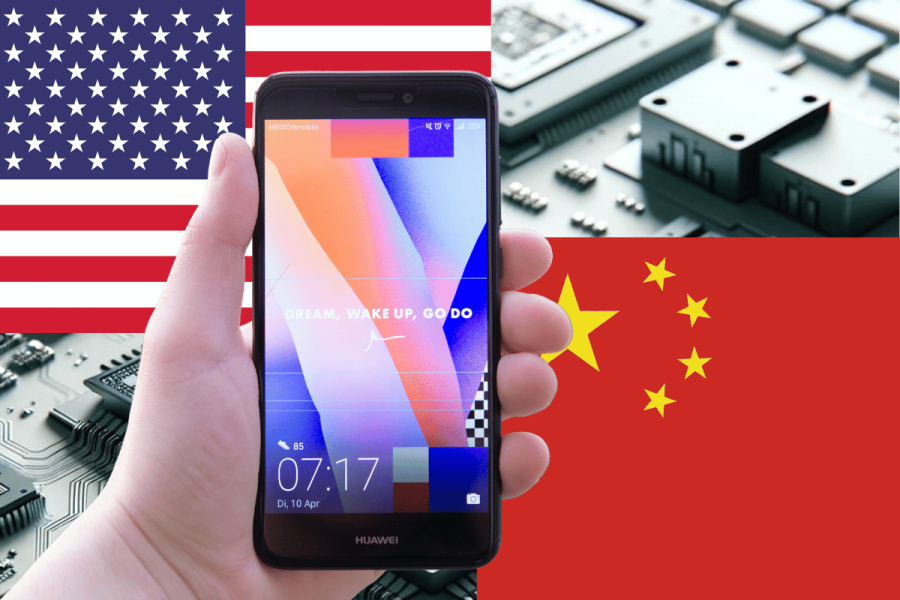The U.S. government has withdrawn export licenses from Intel and Qualcomm, preventing them from supplying specific goods to Huawei, as Washington intensifies its pressure on the Chinese telecoms manufacturer.
According to sources familiar with the matter, the Department of Commerce’s decision on licenses impacts the delivery of chips for Huawei’s laptops and mobile phones.
The department spokesperson told the Financial Times: “We continuously assess how our controls can best protect our national security and foreign policy interests, taking into consideration a constantly changing threat environment and technological landscape.”
“As part of this process, as we have done in the past, we sometimes revoke export licences,” it added.
Since 2000, the U.S. government has raised concerns about Huawei, citing its ties to the Chinese government and military, sanctions violations, theft of intellectual property, and other offenses. However, scrutiny intensified in 2019 when the Department of Justice charged Huawei and its officials with financial fraud and sanctions violations.
In 2020, the Justice Department then charged Huawei with racketeering, conspiracy to steal trade secrets, and sanction violations. At the same time, the Commerce Department increased export restrictions, restricting Huawei’s access to foreign-made semiconductors that use U.S. technology. Additionally, Congress allocated $1.9 billion to facilitate the removal of Huawei equipment from U.S. networks.
The Biden Administration upheld the Huawei-related restrictions imposed by the Trump Administration and tightened restrictions on sales of semiconductors for 5G devices.
Marco Rubio, the Senate intelligence committee Republican vice-chair, and other significant players wrote in a letter to U.S. commerce secretary Gina Raimondo, “It is clear from these trends that Huawei, a blacklisted company that was on the ropes just a few years ago, is making a comeback.”
China advances in chip tech without help from the U.S.
Despite the restrictions, China is making significant progress in developing advanced semiconductors. The country’s leading chipmaker SMIC has new production lines in Shanghai to manufacture next-generation 5-nanometer (5nm) mobile processors, which Huawei designs. Several Chinese journalists, including Li Zexin from state-owned Xinhua News, said the ongoing sanctions against Huawei were due to its “jaw-dropping 6-fold profit growth in the 1st quarter of 2024.”
The US escalated its sanctions against Huawei today. The 2 news should be read together.
The fact is that despite the endless efforts to stop Huawei, the company still achieved a jaw-dropping 6-fold profit growth in the 1st quarter of 2024.
It's not a surprise to see this… pic.twitter.com/6FibUPrqze
— Li Zexin (@XH_Lee23) May 8, 2024
There have also been major advances in radio-frequency (RF) chip design and engineering in Huawei’s latest flagship smartphone, the Mate 60 Pro. The innovations indicated in the Mate 60 Pro prove that, even under U.S. trade restrictions, the Chinese tech giant can design cutting-edge mobile devices without American help.
Featured image: Canva

















